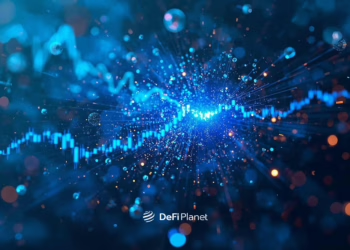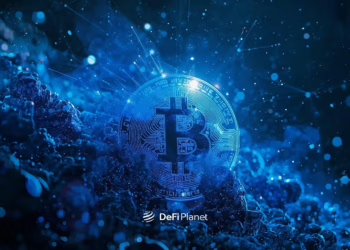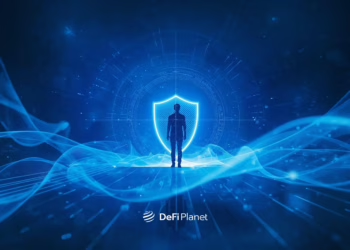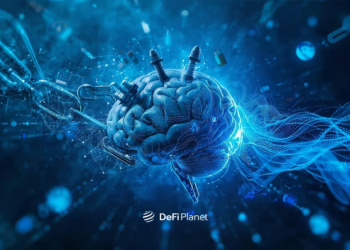Ethereum account abstraction is an exciting and innovative idea that can make Ethereum easier to use for more people. It provides a new way of representing users on the platform, resulting in a better overall experience with decentralized applications (dApps).
The best thing about account abstraction is that it gives users more control and flexibility over their wallets. This means they can manage their wallets how they want, making using dApps much easier.
One outstanding advantage of Ethereum account abstraction is that it enables users to regain access to their wallets even if they forget their passwords.
This article delves into the concept of Ethereum account abstraction, explaining what it is and how it works. It also highlights how it benefits users, making their experience on the Ethereum blockchain seamless and empowering.
An Overview of Ethereum Accounts
There are two types of Ethereum accounts:
- Contract accounts (CAs)
- Externally Owned Accounts (EOAs)
An EOA (Externally Owned Account) is like a person, while a CA (Contract Account) is more like a program or smart contract on the blockchain that governs an account’s operation.
One example of an EOA is the MetaMask wallet, which comprises both public and private cryptographic keys responsible for managing the account’s activities. Users have full control over what happens with their EOAs, meaning they decide and authorize all the actions.
On the other hand, CAs don’t have private keys, and users don’t directly manage the smart contracts they are associated with. Instead, the way CAs function is entirely determined by the code they are built upon. Users can’t change this code, so they can’t directly control the actions of CAs.
To sum it up, EOAs are like personal accounts that users have full control over, while CAs are like rule-bound accounts governed by the code they are created with.
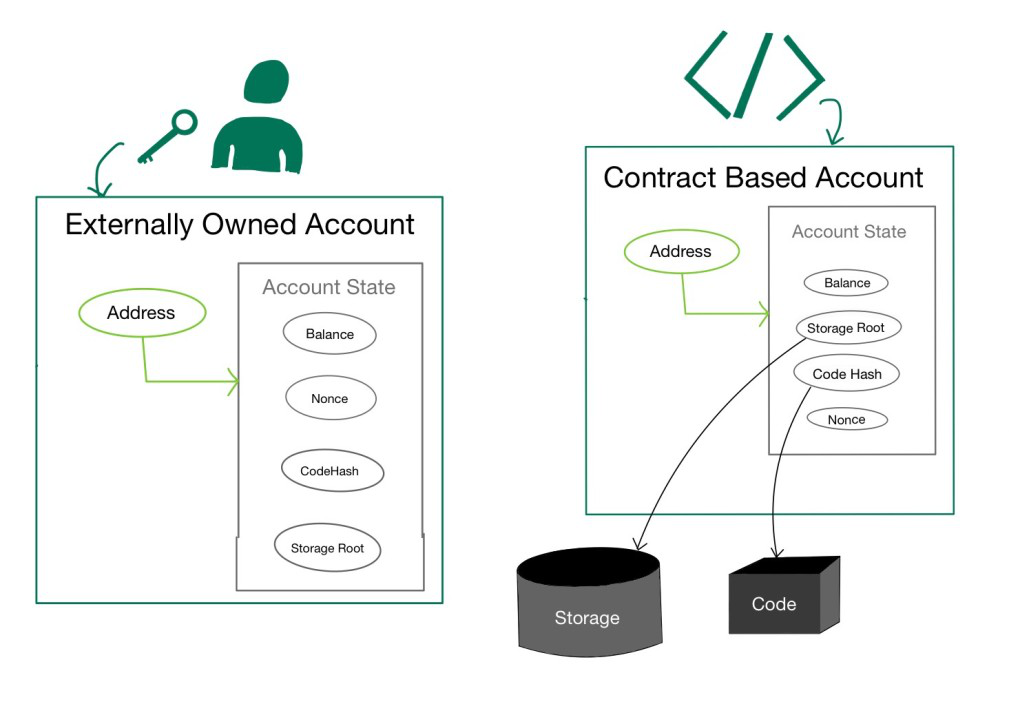
What is Ethereum Account Abstraction?
Ethereum account abstraction aims to simplify the system by merging two types of accounts into one, thereby eliminating the need for separate account types. This involves combining Externally Owned Accounts (EOAs) and Contract Accounts (CAs) into a single Contract Account that can perform both contract functions and token transactions.
With this modification, transactions will be transferred from the blockchain to the Ethereum Virtual Machine (EVM), making it impossible to distinguish between accounts. This means that all accounts will be treated as a single type, rather than existing as separate account types.
The result is a more streamlined and efficient system that is easier to use and understand for developers.
What Motivated Account Abstraction in Ethereum?
Most of Ethereum’s wallets are EOAs (Externally Owned Accounts). These include popular ones like MetaMask and imToken, as well as hardware wallets such as Ledger Nano.
The downside with EOAs is that they rely on a single key to manage the entire account. If this key is lost or compromised, all the tokens stored in the wallet will also be lost.
The concept of account abstraction was introduced to address this limitation and make accounts more flexible for users.
For some customers, account abstraction simply means having an account that operates like a traditional bank account is still accessible even if they forget their password. But for more experienced users, it opens up possibilities to add extra controls or features to their accounts.
One significant advantage of account abstraction is that it enables using smart contract wallets with verification logic, something impossible with EOAs.
Now, users have the freedom to add or remove devices and explore recovery options with trusted individuals like friends or lawyers without the hassle of having to write down multiple recovery phrases on paper.
How Ethereum Abstraction Works
Earlier, we discussed the two main types of wallets on Ethereum: contract accounts (CAs) and externally owned accounts (EOAs).
CAs are controlled by smart contracts, while EOAs are owned and managed by individuals. One challenge with EOAs is the risk of human error due to the reliance on private keys for access. Losing or forgetting the private key could result in permanent loss of funds.
To address these issues, “account abstraction” combines EOA and CA wallets. This adds a smart contract layer to EOA wallets, allowing users to set predefined actions triggered by specific conditions. For instance, users can establish processes to recover lost private keys, ensuring they can access their wallets without losing funds.
Account abstraction also grants wallet owners greater control. They can set transaction limits, implement two-factor authentication, and simultaneously sign multiple transactions to save on gas fees.
Benefits of Ethereum Account Abstraction
Ethereum account abstraction is essential to making the Ethereum blockchain easier for everyone to use. It helps simplify how we interact with the blockchain and reduces the chances of losing important security information. This is a big deal because it improves the reputation and usefulness of cryptocurrencies and DeFi ecosystems.
Using social logins to create accounts can make it much easier for new users to get started. This means the whole experience is better for people who might not have much experience with this stuff. Also, account abstraction makes smart contracts more flexible and compatible with different protocols and dApps.
Furthermore, account abstraction significantly contributes to privacy and security enhancement by enabling the self-custody of assets.
Average users have previously struggled with using self-custodial wallets due to the complexity of safeguarding private keys and seed phrases. Just one mistake could result in massive financial losses.
But with account abstraction, things get easier and safer. Users don’t have to rely as much on private keys, and it’s simpler to program wallets. Consequently, non-custodial wallets can now cater to mainstream cryptocurrency users.
Use Cases of Ethereum Account Abstraction
When fully implemented, Ethereum account abstraction will result in several reconfigurations and user experience modifications allowing developers to create and manage accounts as they see fit. Some of its applications include:
Sponsored Transactions
Account abstraction will allow organizations and their partners to do things like pay fees on behalf of users and allow users to pay gas fees with ERC-20 tokens. This will be converted to ETH and sent to the blockchain later on.
If dApp developers choose to cover transaction costs as part of their onboarding process, one of the most significant barriers for new cryptocurrency users may be removed. Most dApps currently require users to visit a CEX (centralized exchange), complete KYC processes, purchase Ethereum (ETH), and then transfer it to their wallet.
Wallets
Currently, each transaction in a self-custodial wallet must be approved simultaneously. With Ethereum account abstraction, transactions can be scheduled with either an event-driven flow or a time delay. You could do this to schedule recurring payments to a self-custodial wallet.
Account abstraction has been dubbed the “future of wallets” because it allows users to change wallet keys without changing wallets and provides advanced security features such as multi-sig.
Account abstraction will almost certainly make Web3 available to everyone by making the interface easier to use, allowing multiple people to sign a contract, or creating a contract that can be used by multiple people.
Meta-Transactions
Users can interact with a smart contract without paying gas fees by using meta transactions (or “gasless” transactions). Although the gas fees can quickly add up, this is especially useful for apps that require users to make regular or small transactions.
Challenges Facing Ethereum Account Abstraction
Although Ethereum account abstraction has several benefits, there are also some challenges and limitations that need to be solved. These include:
Complexity
Implementing account abstraction can be challenging. It needs smart contracts to communicate with different account types, each with certain functionality and security requirements. This could make the smart contract code more complex and challenging to create, test, and maintain.
Security Risks
Account abstraction may put the security of the smart contract ecosystem at risk. By letting smart contracts interact with any kind of account, hackers could take advantage of flaws in the system to get access without permission or steal assets.
Lack of Standardization
Since account abstraction is still a new idea, there isn’t yet a set method for putting it into practice. The Ethereum ecosystem may split up, which could cause interoperability problems and make it hard for developers to make and use reliable smart contracts.
To fully realize the potential of Ethereum account abstraction, it needs more standardization, robust security measures, and a focus on performance optimization. This will ensure that it can be used successfully in a wide range of smart contract applications.
Projects Adopting Ethereum Account Abstraction
Some Layer 2 blockchains on Ethereum are paving the way for native account abstraction integration. Companies like StarkWare (the firm that created the StarkNet blockchain) are already using account abstraction. StarkNet already has the infrastructure to use account abstraction for biometrics or facial recognition for authorizing crypto payments.
Visa proposed using account abstraction to implement automatic payments via the StarkNet infrastructure in December 2022. This would function similarly to automatic bill payments in a bank account, except that it would now be carried out via the blockchain.
Other companies, such as Gnosis Chain, are also attempting to include account abstraction in their architecture.
Future Outlook of Ethereum Account Abstraction
Ethereum account abstraction could revolutionize how smart contracts are created and executed on the Ethereum network. These are some of the reasons why this technology holds promise:
Reduced Gas Fees
The fees required to run a smart contract on the Ethereum network can be reduced with the help of account abstraction. This is due to the abstraction layer’s ability to execute the contract more quickly and efficiently, saving gas fees.
Improved Scalability
Ethereum has had scalability problems due to the limited number of transactions that can be executed per second. Account abstraction can improve scalability by reducing the quantity of data that needs to be stored on the network. .
Increased Interoperability
Account abstraction allows contracts to run on multiple networks, which can help blockchains work better together. This results in a more seamless and interconnected blockchain environment..
Conclusion
- Account abstraction has the potential to revolutionize Web3 and usher in a new era of decentralized applications. One of the key benefits of this technology is its ability to simplify the use of cryptocurrencies, which could accelerate adoption.
- In addition to making cryptocurrency wallets easier to use, account abstraction also has the potential to enhance the performance, flexibility, and security of smart contracts on the Ethereum network.
- However, it is important to note that account abstraction is still a proposed modification, and, as such, must undergo a rigorous review and testing process to ensure that it does not introduce any new vulnerabilities or unintended consequences.
If you would like to read more articles like this, visit DeFi Planet and follow us on Twitter, LinkedIn, Facebook, and Instagram, and CoinMarketCap Community.
“Take control of your crypto portfolio with MARKETS PRO, DeFi Planet’s suite of analytics tools.”

